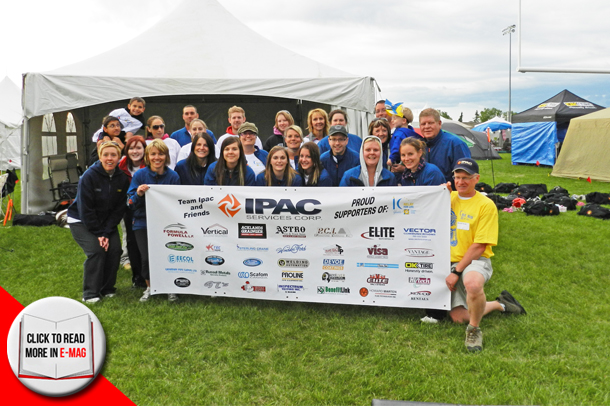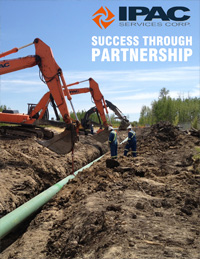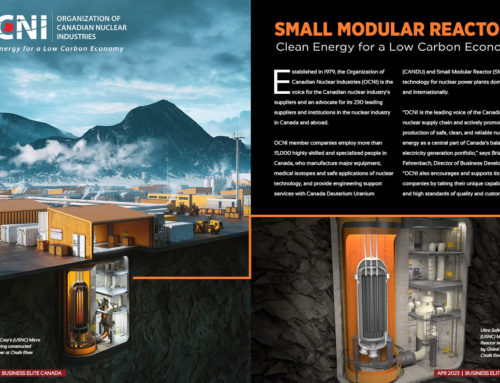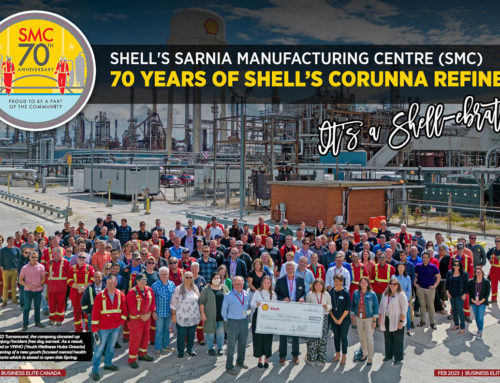By Cheryl Long
When they banded together to launch Aron Services 25 years ago, co-founders Ron Ward and Arie Roscher envisioned a small, low-risk, service-focused company specializing in maintenance services for companies in the construction and natural resources sectors. Just a year later, the strategy for the company (renamed IPAC Services Corp. in 2006) was heading in a vastly different direction, incorporating plans for growth and expansion.
Today, IPAC employs more than 600 people during peak season, running seven service lines that provide construction, maintenance and logistical services across Western Canada.
“We were going to remain small and in control and not have humungous overheads and interest charges and everything that comes with running a larger corporation,” Ward explained. “It became evident after a year that if you’re going to succeed in business, you have to grow it and have to provide opportunities for key players.”
Within their first two years of operation, Aron Services had purchased an administration office in Calgary and an operations centre in Grand Prairie, Alberta, and began expanding the business through the acquisition of companies over the next several years. In 2006, they changed their name to IPAC Services Corp. — an acronym representing the amalgamation of Aron Services (2003) Ltd., C-YA Transport Ltd., PSM Pacifical Services and Maintenance International Inc., and Anbe Software & Computers Inc.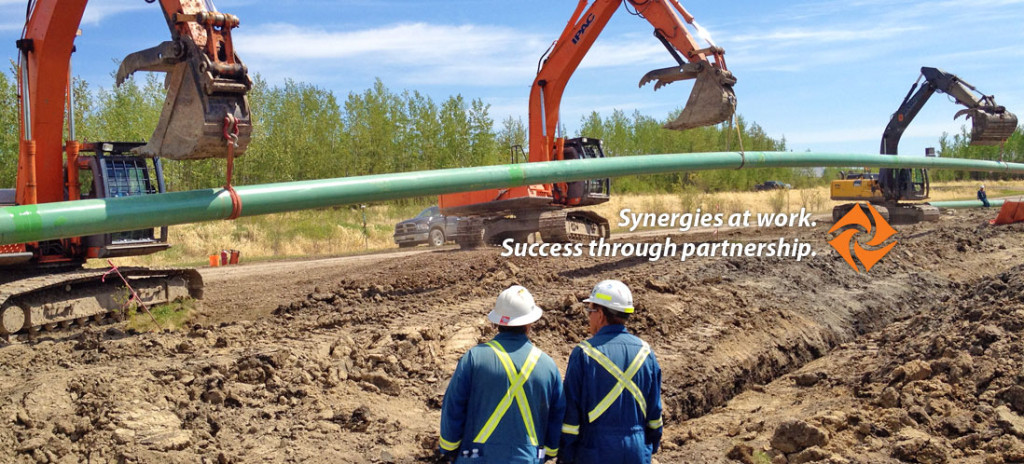
Seven areas of operation in Western Canada
“The company has changed tremendously from what we started with,” Ward said. “We market it as construction, maintenance and logistics.” The seven areas of operation cover construction and maintenance, shop fabrication, abrasive blasting and coating, electrical and instrumentation, transport and logistics, scaffold and support, and technology. The head office and the majority of their services are located in Grand Prairie with additional operations centres in Airdrie, Alberta and Fort St. John, British Columbia.
Their expertise stretches across a broad cross-section of industries, from petrochemical, utilities, forestry and oil and gas to wood products, pulp and paper, power generation and mining. IPAC’s comprehensive construction packages include fabrication, painting, transportation and installation, and the company’s maintenance division is equipped to handle ongoing service programs.
IPAC is still focused on expansion and broadening the company’s footprint. Their one- and five-year plans include an aggressive growth strategy that could see up to five additional locations established in the next three years. One of IPAC’s most recent developments involved a partnership with Vancouver-based Seacliff Group in July 2014. Seacliff is expected to provide the support and financial backing that will allow IPAC to expand operations in the Western Canadian energy sector.
Along with expansion comes challenges and one of the greatest for IPAC is the hiring of skilled labour. IPAC’s “very active” human resources department keeps an extensive list of past employees and maintains a database that currently sits at approximately 5,000 names. Compensation that exceeds the industry average, a strong trade development program and additional benefits help IPAC attract some of the best in the business. That’s particularly important in the construction industry where hitting the ground running is status quo.
“When you’re awarded a project, you have to go basically from zero to 300 people or if you get into a maintenance turnaround situation, you’ve got two weeks where you have to provide 150, 200 people,” Ward said.
Reassigning employees to avoid layoffs
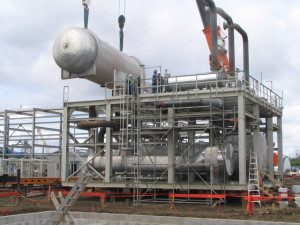 In industries such as construction, it’s not uncommon to go through layoffs after a contract is completed. But because IPAC offers so many different services under one roof, they’re able to reassign employees to other jobs when there’s a lag or a break between projects. Offering positions in maintenance or other regular work has allowed the company to maintain a larger employee roster, which helps to stave off future staffing challenges.
In industries such as construction, it’s not uncommon to go through layoffs after a contract is completed. But because IPAC offers so many different services under one roof, they’re able to reassign employees to other jobs when there’s a lag or a break between projects. Offering positions in maintenance or other regular work has allowed the company to maintain a larger employee roster, which helps to stave off future staffing challenges.
A special benefit program is part of IPAC’s commitment to safety, rewarding employees with a credit for each safe hour worked that can be redeemed through the company’s partnership with Air Miles. Everyone working under one of the service lines is managed under IPAC’s corporate governance, which maintains continuity in areas such as pay structure and safety protocols.
While IPAC has fostered strong relationships with their employees, the company has given the same consideration to their partnerships with suppliers and other business associates. Many of those companies, like Sterling Crane, Rogers Insurance and accountants Fletcher Mudryk, have been around since the company’s inception 25 years ago.
“We’ve developed strong supplier relationships with a number of companies,” Ward said. They also maintain industry memberships in organizations such as the Construction Owners Association of Alberta, the Alberta Construction Safety Association, ISNetworld and ComplyWorks.
Taking advantage of the ups and downs
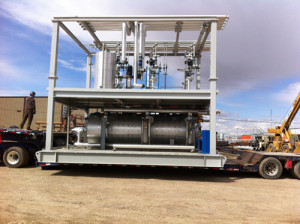 Any company that has not only survived but grown over a quarter of a century has experienced its share of ups and downs. Being involved in an industry that’s cyclical, such as the energy sector, can be challenging and not all companies survive the downturns. Ward has been through six of those periods, including the infamous financial crisis of 2008, and has found ways to reorganize the company in ways that have made it stronger.
Any company that has not only survived but grown over a quarter of a century has experienced its share of ups and downs. Being involved in an industry that’s cyclical, such as the energy sector, can be challenging and not all companies survive the downturns. Ward has been through six of those periods, including the infamous financial crisis of 2008, and has found ways to reorganize the company in ways that have made it stronger.
“The greatest accomplishment as a company is just still being here. I look at who was around 25 years ago and the majority of them aren’t here today, whether it was an acquisition or falling on bad times or just a windup,” Ward said. “To persevere is the greatest accomplishment as a company today.”
To learn more about IPAC and its extensive range of services, visit www.ipacservices.com.

